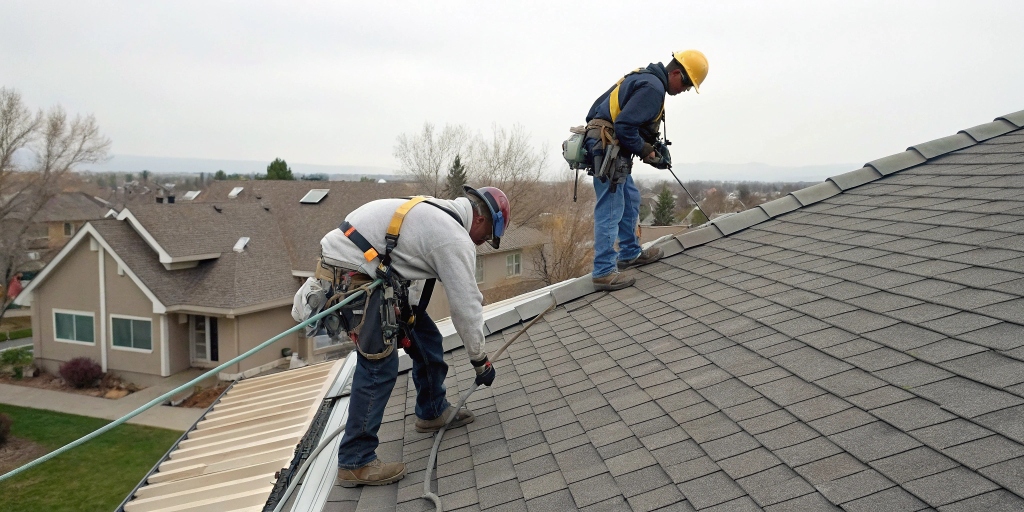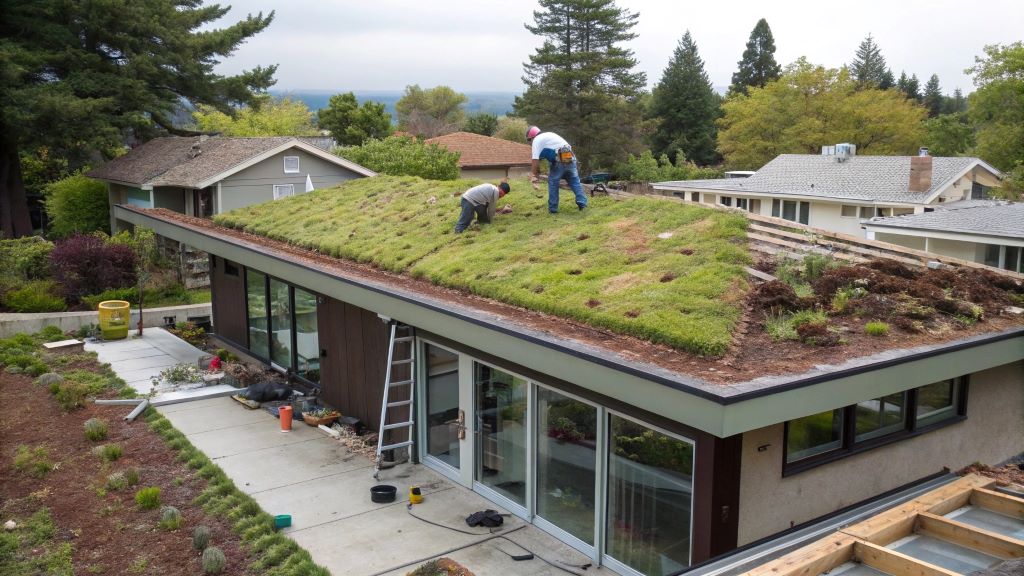Roofing work isn’t just about shingles, underlayment, and sealant. It’s high-stakes labor done at dangerous heights, where one misstep can turn serious. The roof contractors that take job site safety seriously follow strict measures to protect their teams, clients, and property. Here’s a look at the real-world safety protocols roof companies near me apply every single day—especially in places like Huntsville where the weather can flip fast and the terrain is never predictable.
Mandatory Fall Arrest Systems Installed for Rooftop Crew Safety
Before a single nail is fired into a rooftop, fall arrest systems are set up as the first line of defense. Roof contractors in Huntsville AL install harnesses and anchor points to secure workers no matter the pitch or height of the home. These systems are designed to catch a worker mid-fall, reducing injury and providing immediate support. Roof companies near me rely on OSHA-compliant setups, using shock-absorbing lanyards and full-body harnesses that are tailored for roofing environments.
In Huntsville’s mix of new builds and historic properties, fall arrest systems need to be adaptable. Whether it’s a steep gable or a flat metal roof, local roofing crews don’t take chances. They’re trained to inspect the gear daily, secure every anchor, and double-check connections before the crew starts climbing. It’s a non-negotiable part of the work that gives both the team and the homeowner peace of mind.
Secure Roof Edge Guardrails and Warning Lines Deployed on Every Job
Edge guardrails aren’t just for big commercial projects. Roof contractors near me often install temporary rails and perimeter warning lines on residential roofs too. These systems make it clear where the danger zones begin and create a physical barrier that helps reduce accidental slips. Warning lines are especially helpful during complex installs, allowing workers to focus on their task without getting distracted by edge awareness.
Roof contractors in Huntsville AL adapt guardrail placements based on the structure and layout of each home. On multi-slope jobs or tall buildings, combining rails with visible warning markers ensures every worker has visual cues to stay safe. These measures are fast to install and come down just as easily, so there’s no extra hassle after the project wraps up.
Strict PPE Enforcement Helmets Gloves Non‑Slip Boots and Eye Protection
PPE isn’t a checklist item—it’s standard issue. Roof companies near me require full personal protective equipment on-site at all times. Helmets protect against falling tools, gloves offer grip and cut protection, and non-slip boots keep traction even on damp or dusty surfaces. Safety glasses are worn during tear-offs, cutting, or while handling adhesives and chemicals.
In the Alabama heat, wearing all this gear can be uncomfortable, but professional Huntsville roof contractors don’t compromise. They outfit their teams with breathable materials and lightweight hardhats designed for sun and sweat. PPE protocols also extend to visitors or inspectors who step onto the job site. If you’re near roofing near me, don’t be surprised to see crews fully suited up—even if it’s 95 degrees out.
Daily Hazard Assessments to Identify Structural and Weather Risks Before Work Begins
Before boots hit the ladder, the crew performs a hazard assessment. This isn’t just a formality—it’s a practical inspection of the roof’s condition, nearby obstructions, and the weather forecast. Roof contractors in Huntsville AL know how quickly weather patterns shift, and sudden wind or rain can create major risks. That’s why daily check-ins matter, even on seemingly clear days.
Crews look for soft spots in decking, rotting fascia, exposed nails, and anything that might compromise the job or safety. These assessments are also when the team lays out their work zones and tool paths. If any part of the structure raises a red flag, it’s documented and addressed before moving forward. It’s how roof companies near me stay proactive rather than reactive.
Teams to Monitor Safety and Prevent On‑Site Accidents
On large jobs, one crew member is often designated as the safety lead. Their role is to oversee practices, check equipment, and step in if anything gets overlooked. Roof contractors near me know that even skilled workers can miss details, especially on fast-paced jobs. Having a team member focused on safety makes a difference.
These safety monitors also serve as a go-between for the property owner and the crew. If weather delays, structural issues, or unexpected hazards arise, the safety lead communicates the plan clearly. Huntsville roof contractors with a safety-focused culture tend to complete jobs more efficiently because fewer delays occur due to mishaps or miscommunication.
Neat Work Zones with Organized Tools and Debris Management to Reduce Trip Hazards
An organized work site isn’t just good manners—it’s safer. Roof contractors near me keep work zones clear of clutter by assigning tool drop points and debris bins. A scattered nail gun or loose hammer can cause someone to trip, especially on angled surfaces. Crews use tool belts, magnetic nail sweepers, and roofing buckets to keep everything off the walking path.
Huntsville roof contractors go a step further by organizing cleanup throughout the day, not just at the end. Shingle scraps, underlayment pieces, and old flashing are swept and bagged as they’re removed. Homeowners also appreciate the extra care that keeps their yard and driveway clean, but it all starts with a safety mindset from the roof down.
Ladder Inspection and Secure Placement Practices Around Power Lines and Rough Terrain
Ladders might seem simple, but they’re one of the most common sources of jobsite accidents. Roof companies near me take ladder safety seriously by inspecting each ladder daily for cracks, dents, or worn feet. Placement is double-checked to make sure the ladder is set at a safe angle and secured against the structure.
Roof contractors in Huntsville AL also factor in local terrain—uneven ground, wet grass, and gravel driveways can create unstable footing. Crews often use ladder stabilizers, levelers, or anti-slip mats to keep things steady. Extra precautions are taken near power lines to avoid contact or interference. These careful habits turn a basic tool into a trusted and safe part of the install process.




